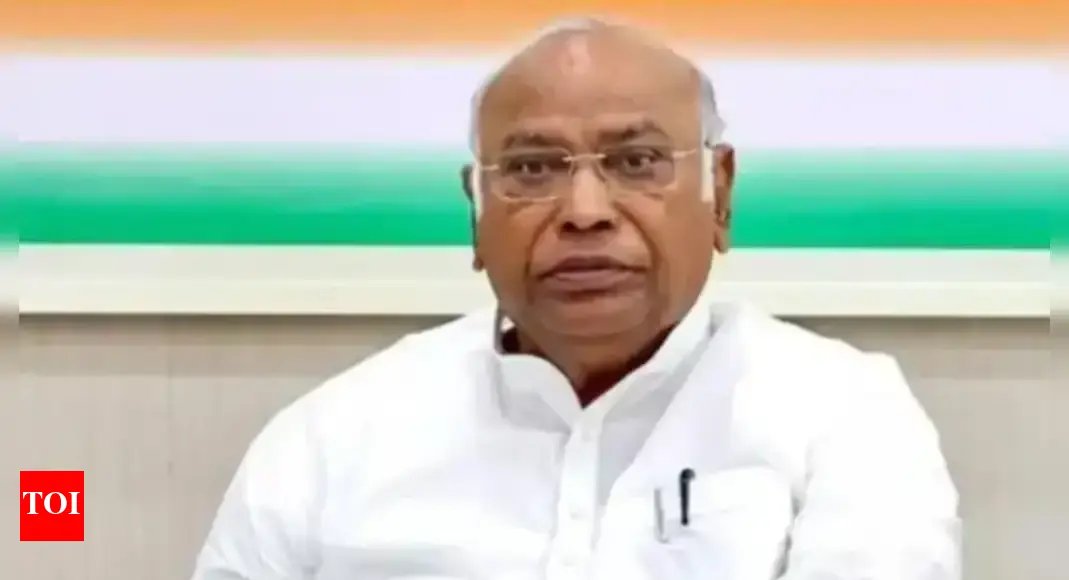The Madhya Pradesh High Court has completed the digitisation of nearly 6.5 lakh case files, translating to over 23.67 crore pages, in a massive push towards creating a paperless judicial environment. The milestone was announced at an international colloquium in Indore on Saturday, which saw senior judges deliberate on the complex legal challenges emerging from the digital world, including artificial intelligence (AI) and cryptocurrency.
The announcement of the high court’s technological leap served as a backdrop to a pressing question that dominated the conference: is the Indian judiciary equipped to handle the legal complexities of the digital age?
At the event, organised by the Madhya Pradesh High Court and the Madhya Pradesh State Judicial Academy in collaboration with the Danish Patent and Trademark Office, Justice Aravind Kumar of the Supreme Court warned that legal professionals could no longer afford to be technologically illiterate.
“The judiciary now faces disputes that no previous generation of judges could have imagined: smart contracts, crypto asset regulation, blockchain-based property transaction and metaverse arbitrations,” Justice Kumar said in his address. “The judge of tomorrow must not only know the law, he or she must understand the technology that shapes it.”
He added, “Judges must understand how algorithms work, how crypto markets move, how AI biases arise.”
The colloquium, titled “Evolving Horizons: Navigating Complexity and Innovation in Commercial and Arbitration Law in Digital World”, also saw the launch of several new digital initiatives by the high court.
Introducing the innovations, Justice Vivek Rusia, Administrative Judge of the high court’s Indore bench, said that apart from digitising its own records, the court had also digitised over 61 crore pages at the district court level. He unveiled new platforms including an online legal internship application software, an online communication system (OCS) for police to submit case diaries digitally, and “Samadhan Apke Dwar”, a dashboard to monitor compoundable cases across departments.
Story continues below this ad
While these initiatives mark a significant step in modernising court administration, several speakers highlighted the emerging challenges where technology is outpacing legal frameworks.
Solicitor General of India Tushar Mehta shared a recent, cautionary tale of an arbitration award being challenged on the grounds that it may have been written using ChatGPT. “How the technology will have to be in tune with the conventional adjudicator process will be one of the key issues,” Mehta noted, pointing to the need for clear ethical and legal guidelines on the use of AI in judicial and quasi-judicial processes.
Echoing this concern, Justice Rajesh Bindal of the Supreme Court cautioned against the new-age problem of AI-generated evidence and the citation of “non-existent judgments” created by AI tools. “AI has its own problems also because a lot of evidence is being created by AI,” he said. “That’s a big challenge for the arbitrators also and the courts also.”
The discussion also turned to the gatekeepers of the digital world – internet intermediaries like search engines, social media platforms and e-commerce marketplaces – and the question of who is responsible for illegal content online.
Story continues below this ad
Justice GS Kulkarni of the Bombay High Court explained that under Section 79 of the Information Technology Act, 2000, online intermediaries are granted a “safe harbour”, exempting them from liability for third-party content. He compared them to bookstores, which are not responsible for the content of the books they sell. However, this protection is conditional. “If an intermediary is not obeying the law of the land… and still [wants] to keep it on [its] platform… [something] which is definitely going to breach somebody’s rights,” they lose that protection, he said.
This legal framework, he noted, requires courts to constantly perform a balancing act between the free flow of information and the protection of constitutional rights and national interests.
Providing a European perspective, Erling Vestergaard, an expert consultant with the Danish Patent and Trademark Office, said the EU’s new Digital Services Act is moving towards placing greater obligations on platforms. He highlighted concepts like “Know Your Business Customer” requirements – which compel platforms to collect identification information from businesses using their services – and a system of “Trusted Flaggers” – which allows designated public authorities or private organisations to flag illegal content for prioritised, swift removal – to ensure intermediaries react expeditiously to complaints about illegal content.
In his inaugural address, Supreme Court judge Justice JK Maheshwari summarised the judiciary’s role, stating, “Our goal is not to reinvent the law but to extend its principles with fairness and certainty in new domains.”




